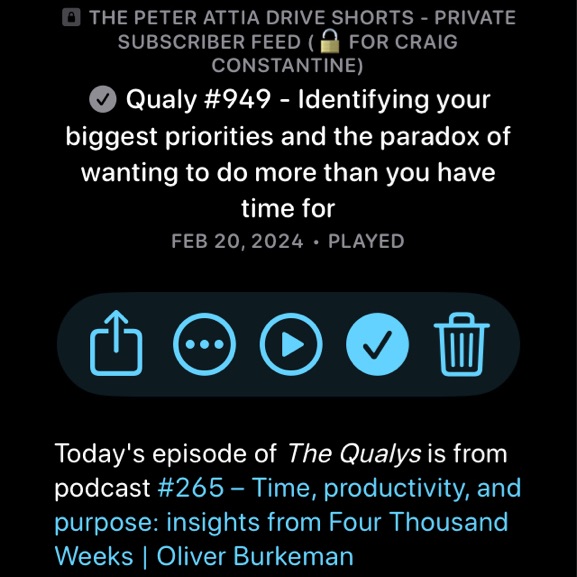Our “surface area of concern”—the number of events we pay attention to on a regular basis—has expanded alongside technology. This is not an inherently negative thing, but becomes one when it adds chronic stress, leads us to burnout, and affects our mental health.
~ Chris Bailey from, Your surface area of concern
This is a precise and powerful way to describe something which lies at the root of many other phrases: Information overload, multi-tasking (as a way to fail), and spreading our attention too thin (as another way to fail), are just three examples. I’ve long since decided that I do not need to have an opinion on most things, and that frees me from feeling I need to notice as many things as possible.
For many years—but explicitly I have 3 years of journal entries where this is glaring—I’ve lamented wanting to spend more time on some specific things. And yet my days slip past doing other things. I’m not talking about things which get planned—a day at the beach, dinner at someone’s house, or weekend work in the yard. No, I’m talking about that, “where the hell did today go?” stuff. If you like visuals: The glass jar that I filled slowly all day with the sand of small things, only to realize at day’s end that there’s no way to put these larger rocks in. Ever. Because every tomorrow is like today. Dammit.
About a week ago I decided—memento mori, ya’ know—it’s time to flip that shit over. For several years now, I’ve been starting with pretty consistent morning routine. After that, I have four things that I want to do, and I’ve been doing those next. Sometimes that means I don’t touch anything else—not my phone, not my email, not other people, not bills, not even voicemail from roofers—until 4 in the afternoon. It sounds crazy, I know. Guess what? Every day I look at those four things and go: Shazam! Progress! …and it turns out that I then go on to pour in a ton of sand too—return that call [from yesterday], mow the lawn, run an errand, interact with people, etc..
ɕ
